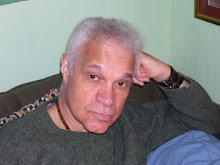Mosques in America: A Perspective
Aug 25, 2010
from Oswald at Large by Oswald Rivera The uproar over the proposed mosque/cultural center on Ground Zero makes some of us, on both sides of the argument, uncomfortable. When that paragon of of marital fidelity, Newt Gingrich, equates Islam with Nazis, then the thing has gotten out of hand. The whole episode reflects a deep, personal and passionate argument. And what's lost in the argument is that the Islamic creed and American principles go back a long way, sometimes in tandem, and sometimes as opposites. This is not the first time the mosque issue has come up, and certainly it will not be the last. Whether one favors the building of the mosque/cultural center or not, one should understand the historical record. If nothing else, it gives us a guidepost as to understanding America's relation to Islam. And, though most of us may not know it, it's a long and storied history.
The uproar over the proposed mosque/cultural center on Ground Zero makes some of us, on both sides of the argument, uncomfortable. When that paragon of of marital fidelity, Newt Gingrich, equates Islam with Nazis, then the thing has gotten out of hand. The whole episode reflects a deep, personal and passionate argument. And what's lost in the argument is that the Islamic creed and American principles go back a long way, sometimes in tandem, and sometimes as opposites. This is not the first time the mosque issue has come up, and certainly it will not be the last. Whether one favors the building of the mosque/cultural center or not, one should understand the historical record. If nothing else, it gives us a guidepost as to understanding America's relation to Islam. And, though most of us may not know it, it's a long and storied history.The earliest documented case of a Muslim coming to these shores is that of a Dutchman, Anthony Janszoon van Salee. He came to what was then New Amsterdam (later New York) in 1630; and was referred to by his compatriots as a "Turk." The first Muslim to enter the historical record is one Estevanico of Azamor, a Berber from North Africa who explored parts of the Midwest for the Spanish Empire. As far as we know, the first American public official to acknowledge the impact of Islam was John Adams who, in his treatise Thoughts on Government, praised the prophet Muhammad as a "sober inquirer after truth" alongside Confucius, Zoroaster, Socrates and other "pagan and Christian thinkers." Later on, in 1790, the South Carolina legislature granted special legal status to a community of Moroccans, 12 years after the Sultan of Morocco became the first foreign head of state to recognize the U.S. That's right, a Muslim nation was the first to recognize our existence.
Relations between Muslim nations and America were not always that rosy. In Marine Corps boot camp we recruits had to learn the Marine Corps anthem. The opening line is "From the halls of Montezuma to the Shores of Tripoli." The Tripoli part has to do with the U.S. war against the Barbary Pirates, a bunch of Muslim privateers who operated out of bases in North Africa; and, who from 1785 to 1815 demanded tribute from the U.S. in order for us to trade with the Orient, without having U.S. ships boarded and taken. Finally, the Americans had had enough and the marines were sent in to stop the extortion.
As for mosques in America? No less a notable than Benjamin Franklin, wrote in his autobiography (published in 1791) that he "did not disapprove" of a meeting place in Pennsylvania that was design to accommodate all religions. He stated that "even if the Mufti of Constantinople were to send a missionary to preach Mohammedanism to us, he would find a pulpit for his service." Muslims took him at his word and in 1907, immigrants from the Podliasie region of Poland founded the first Muslim organization in New York City, The American Mohammedan Society. But it wasn't until 1915 that the first American mosque was founded by Albanian Muslims in Biddeford, Maine. The nest big mosque, the Al-Sadig Mosque, was built in the Bronzeville neighborhood of Chicago in 1920. And in 1934, the first building specifically built to be a mosque was established in Cedar rapids, Iowa. By 1945 a mosque existed in Dearborn, Michigan, home to the largest Arab-American population in the U.S. The building of mosques increased in the 1920s and 30s, but it wasn't until the 1960s that construction really sped up. Statistics note that 87% of mosques founded in the U.S. were established within the last three decades. Today there are from 40,000 t0 50,000 mosques, and California has more mosques than any other state.
There are an estimated 2.5 million Muslims in the country. What is not know is that, historically, they tended to support the Republican Party. In the 2000 presidential election nearly 80% of Muslim-Americans supported George W. Bush over his Democratic opponent, Al Gore. Of course, within recent years, with all that's been going on, that support has sharply declined.
In the current on-going debate, I can understand both viewpoints. Religious freedom, whether you believe in religion or not, is one of our bed-rock principles. The right to attend a place of worship in enshrined in our psyche. The Constitution guarantees that right. Still, some argue, having a mosque so close to where 3,000 of our citizens were murdered (300 of whom were Muslim) is like pouring salt on the wound of those who lost friends and family on 9/11. The proponents of the mosque/cultural center should have been aware of that fact, however well intentioned. Nevertheless, because of the controversy, we are suffering a black eye in the Muslim world. Eventually, the controversy will subside, cooler heads will prevail, but, for the time being, the healing will take a long time in coming.


0 Comments:
Post a Comment
Subscribe to Post Comments [Atom]
<< Home